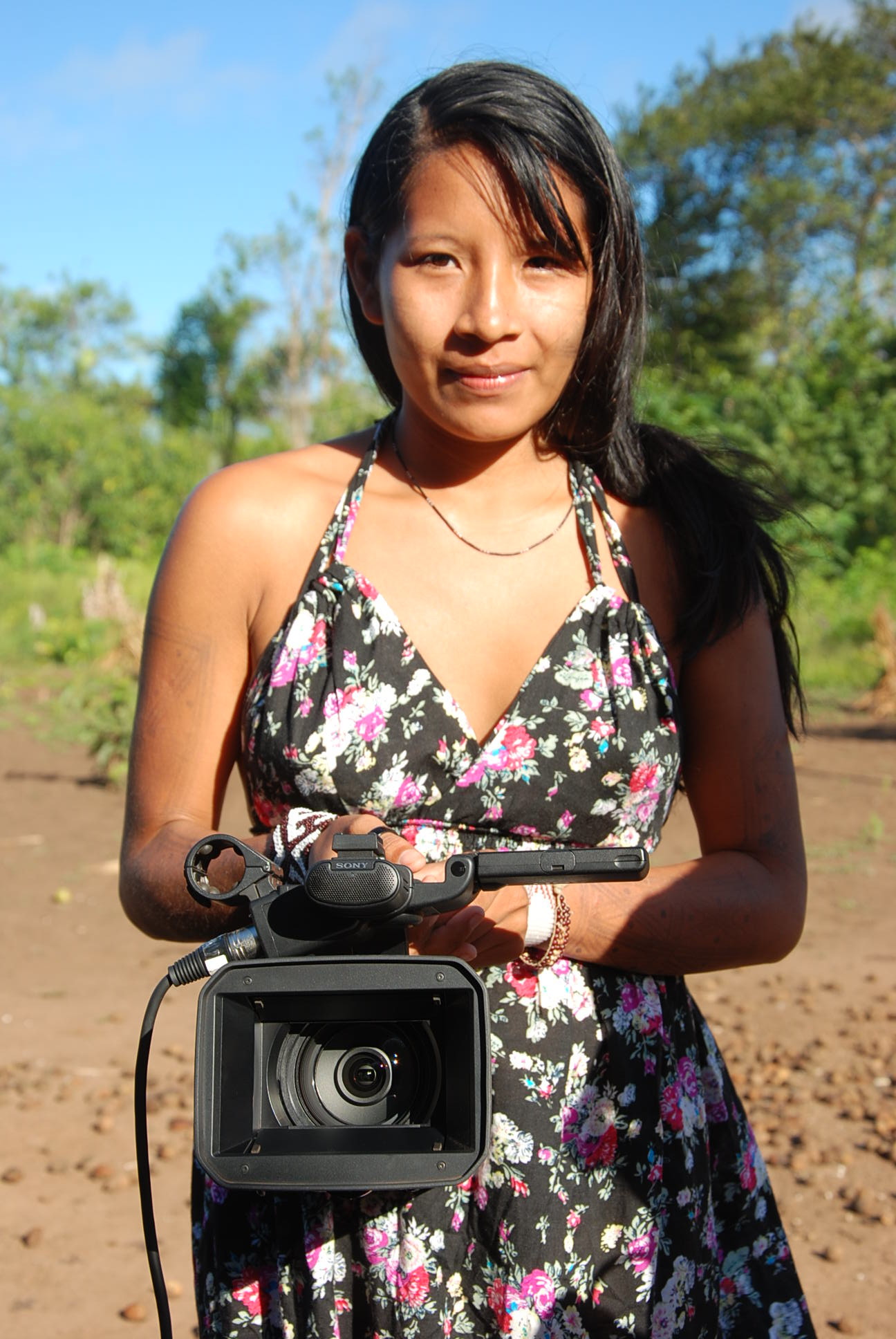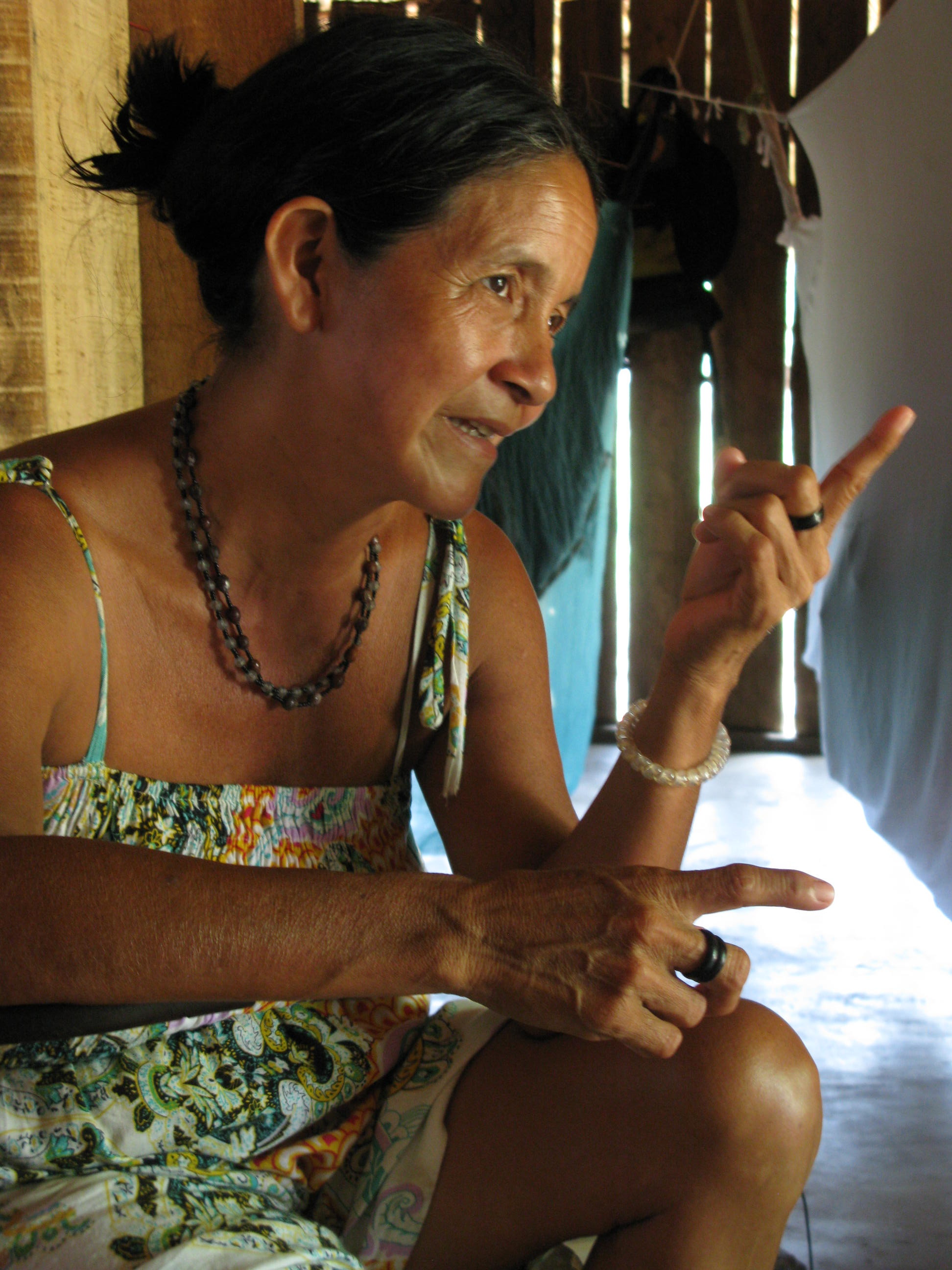Indigenous Women
“We need training, to acquire and utilize the same instruments that the white people have. Even if this knowledge is not our own, we need to learn how to use it”
Irani Makuxi
“An agenda of affirmative action for Indigenous Women of Brazil”
Rita Laura Segato
AUDIOVISUAL AND MULTIMEDIA TRAINING WORKSHOPS FOR INDIGENOUS WOMEN
Instituto Catitu, through its multimedia workshops, seeks to promote the role of indigenous women from a creative process of appropriation of new communication skills. Although there is from the side of indigenous women a growing interest in activities that used to be restricted to men, the opportunities for training and active spaces that take their specificities into account are rare. The more constant contact with the surrounding society has brought transformations to the life of women, their access to information and capacities, and to specific policies as well. Utilizing new technologies as tools of self-representation opens new possibilities of expression and promotes women’s self-esteem. There is an important political aspect here in the sense that it provides them a new way to present themselves to the western world, following their choices, their evaluation, and perspectives. We start to have access to the perspective of women, expressed many times in a more striking way than by conventional political discourse. Watch the video. See the vídeo.

THE WORKSHOPS
The workshops began in 2010, during the 5th Women’s Meeting of the National Xingu Park organized by Projeto Xingu, of the University of São Paulo. The experience of a training model geared exclusively to women was fundamental to motivate them to join the project and generated a demand for new workshops. In 2011, the 2nd workshop bought together, also in Xingu, 22 women from the Kawaiweté, Kamaiurá, and Ikpeng ethnicities. The participation of women of several generations showed that the technological apparatus proper to multimedia production are not obstacles to the participation of older women. Under the supervision of Mari Corrêa, Instituto Catitu’s coordinator and of filmmaker Tata Amaral, the participants produced a short fiction film, “A Cutia e o Macaco” (link), inspired by a Kawaiweté lull song. They also recorded the making of twelve traditional culinary recipes. In 2012, the 3rd workshop took on a multimedia format with the participation of the artist and educator Marie Ange Bordas. In it, the women manifested their desire to continue the work on traditional culinary.
This interest is not new: culinary has been the object of several works related to health by Unifesp and to environmental management on the part of Instituto Socioambiental, which generated an interesting project of cultural recovery of species of peanuts traditionally grown by the Kawaiweté people.
“I always wanted this: to show how we make our food, how it is important for our health and to maintain our culture. The women make it, but it is for everybody to live well”

VISIT OUR FLICKR
Access our flickr and check out more photos of the Indigenous Women project
